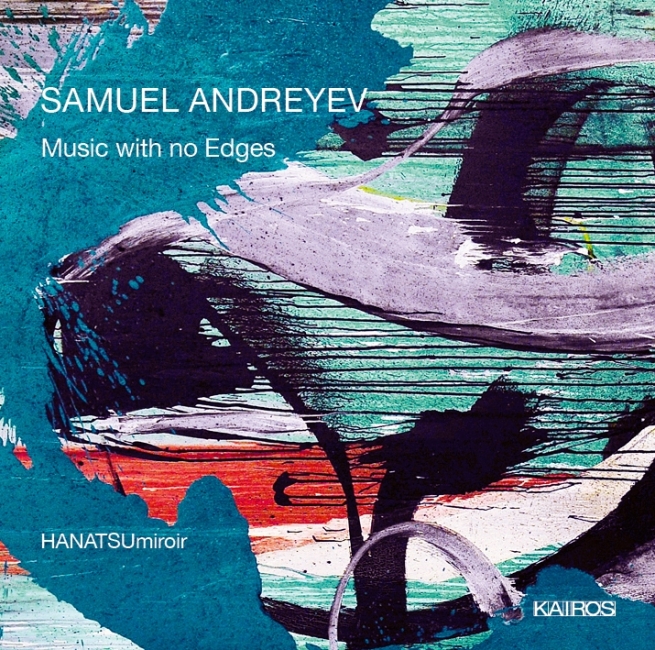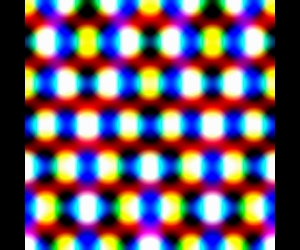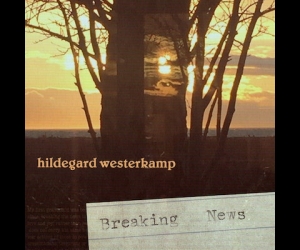
The six works on Toronto-born, Strasbourg-based composer Samuel Andreyev’s brilliant new disc were conceived separately over the span of a decade. Yet the album’s gripping first two minutes serve as a perfect introduction to his world.
Vérifications begins in a matted jumble of jagged dance-like rhythms stridently proclaimed by a trio of wind instruments and punctuated by percussive sputter. Before a pattern is detectable (let alone established), the ensemble retreats, revealing the queasy tones of a Casio SK-1, a small, toy keyboard beloved for its cruddy sampling and synthesis capabilities. It’s a moment of strange wonder—the aural camera zooms out and one recognizes that this tinniness had permeated the music all along. Once the energy resumes, the perspective feels skewed—the music feels at once full and rich, yet also like a miniaturized version of itself.
Andreyev doesn’t shy away from bright, bristling gesture, but these bursts of nimble virtuosity—just like the many sparser passages in his music—are not gratuitous: they are celebrations of what sound can do. It also helps that Hanatsu Miroir, the interpreters on this disc, are such strong and dextrous players that the difficulty of the music simply fades into the background.
Stopping, a vibraphone duo from 2006, is full of the deftly paced shifts of vantage that characterize Andreyev’s work. Growing progressively denser and more extroverted, its initial section ornaments lush resonances with deadstrokes and bowed tones before culminating in a shrill, palate-cleansing, cameo-role roll from a glockenspiel and triangle. The ensuing section ingeniously blends pitch-bent notes with throbbing motor modulations, offering a disorienting contrast. The final movement of Cinq pièces (for percussion and flute) also masterfully pulls the listener into an unforeseen sonic space. Microtonal wine glasses eradicate both the pulse and the division between the two instruments.
More superficial listening might only reveal the European modernist bent of this work, but Andreyev’s musical demeanour is far more complex, evidenced by his forays elsewhere into wayward pop. The work on Music With No Edges offers clarity of form and intention, but it’s neither stiff nor steadfast in its directionality. If anything, Andreyev’s awareness of structure merely enhances the impact of his keen and peculiar ear for colour. His meticulously framed moments feel like portals to alternate dimensions.
Nick Storring is a Toronto-based composer, musician, and writer, and a contributing editor to Musicworks. His music has been presented and performed by the Esprit Orchestra, Eve Egoyan, Quatuor Bozzini, Beijing’s Musicacoustica Festival, and Vancouver New Music. An avid collaborator, Storring has composed for films by Terrance Odette, Ingrid Veninger and, in collaboration with Dafydd Hughes, for the National Film Board’s award-winning Web documentary High Rise: Universe Within (2015), directed by Katerina Cizek. He’s also scored productions by Litmus Theatre and MT Space, worked with celebrated choreographers Yvonne Ng, Marie Josée Chartier, Brandy Leary, and Deepti Gupta, and created music for “ambient gaming environment” Tentacle, which was mounted at New York’s Museum of Modern Art in 2011. Storring’s writing has appeared in Exclaim!, The Wire, and AUX.tv. He also contributed liner notes to Alga Marghen’s reissue of the ’60s band Intersystems’ entire recorded output, as well as RVNG Intl.’s box of early psych trio Syrinx’s reissues and previously unreleased material Tumblers from the Vault.




